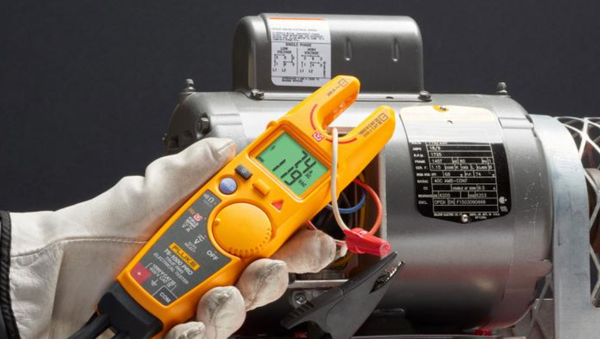Elevating safety standards in electrical testing equipment




Safety is critical in the electrical industry, particularly during testing and maintenance. As electrical systems grow more complex, the demand for dependable tools becomes essential to protect professionals and their clients. Using the right equipment ensures quality work and enhances safety in operations. This article highlights vital tools that contribute to safer practices in electrical testing and maintenance.
The Importance of Quality Equipment
Reliable tools are essential in any profession, especially in electrical testing, where safety and efficiency are paramount. Substandard tools can compromise the accuracy of tests and create safety hazards. Electricians, engineers, and safety inspectors depend on tools they can trust to deliver consistent performance in demanding conditions.
High-quality equipment offers clear advantages, such as enhanced accuracy and dependability. Precise tools ensure measurements align with technical specifications, reducing errors during inspections and maintenance. By using reliable tools, professionals can comply with safety regulations and industry standards more effectively. Additionally, investing in reputable equipment reduces the likelihood of accidents, protecting both workers and clients from potential harm.
Modern tools are often designed with advanced features like digital interfaces and automated functions, improving usability and reducing manual errors. Tools that prioritise safety and efficiency not only improve work results but also build trust and reinforce the credibility of the professionals who use them.
Access Poles: A Game-Changer for Safety
Tools designed for reaching elevated installations are essential for electrical testing, particularly in demanding environments. They allow safe access to overhead lines and transformers while ensuring technicians remain securely grounded. This approach minimises risks associated with working at height and ensures safety standards are upheld.
These tools combine lightweight construction with robust design, ensuring durability and ease of use. Many models feature ergonomic handles, which help reduce strain during extended use. Their thoughtful design makes them a practical investment for professionals who prioritise both safety and efficiency in their work.
For professionals seeking reliable tools for safety and compliance, Detector Tester’s access poles offer a comprehensive range designed for testing smoke detectors and other safety equipment. This resource details various models, highlighting features, specifications, and practical applications. These tools are essential for fire safety inspectors, building maintenance teams, and safety professionals aiming to maintain high standards while ensuring operational efficiency and adherence to regulations.
Implementing Effective Safety Practices in Electrical Testing
Using reliable tools is one way to maintain safety in electrical testing, but professionals should also adopt practical safety measures. Ongoing training and education are crucial for staying updated on the latest safety protocols and equipment handling techniques. Additionally, understanding the specifications and limitations of each tool can prevent misuse, which is a leading cause of accidents.
Conducting regular risk assessments helps identify potential hazards before starting any work. By evaluating the environment and understanding specific risks, professionals can take steps to minimise them. This might include using additional protective gear or modifying work methods for improved safety. Planning allows teams to address challenges without unnecessary delays or risks.
Connecting with other professionals and attending industry workshops can provide valuable insights into effective practices. Sharing experiences and learning from peers enables technicians to enhance their skills and stay informed about new standards and technology. Networking also allows access to unique problem-solving strategies, ensuring adaptable and informed approaches to electrical safety.
For equipment like access poles, proper training on their use is vital. Familiarity with tools not only improves efficiency but also reduces the likelihood of accidents. Clear and thorough instructions should accompany tool training, with hands-on demonstrations emphasising correct procedures and troubleshooting techniques to ensure safe and efficient operation.
Building a Supportive Community for Women in Electrical Fields
Encouraging women to join the electrical industry enhances safety practices and promotes collaboration. Bringing in diverse perspectives fosters innovative ideas that improve both procedures and equipment. Increasing representation also challenges outdated stereotypes, paving the way for more inclusive work environments where diverse teams can thrive and contribute to higher productivity.
Mentorship and support networks are essential for women in electrical engineering and testing. Sharing knowledge and experiences helps women build their careers while prioritising safety and professionalism. Mentorship programmes can connect new professionals with seasoned experts, offering guidance on navigating industry challenges and achieving success in traditionally male-dominated fields.
Dedicated workshops and events offer opportunities for skill-building and networking. These initiatives allow women to connect, collaborate, and focus on innovation and safety in their roles. By participating in such events, professionals can learn about cutting-edge technologies and methods, ensuring they remain competitive while fostering a supportive community for personal and professional growth.
Promoting diversity strengthens the workforce and reinforces high safety standards. By recognising and supporting the contributions of women, the industry moves closer to a safer and more forward-thinking future. Proactive measures, such as scholarships and industry recognition programmes, can also inspire young women to consider careers in electrical engineering and testing.